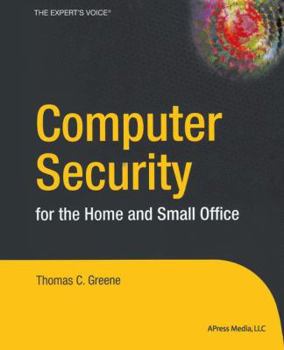Computer Security for the Home and Small Office
Computer Security for the Home and Small Office addresses the long-neglected security needs of users in the home, company workstation and SOHO (Small Office/Home Office) categories, emphasizing client-side security, user privacy, Internet privacy and data hygiene. The basic purpose is to provide the home and SOHO user, and the work-at-home corporate user, a thorough, realistic assessment of the security and privacy risks they face, to instruct them in making their machines and networks unattractive targets for attack and to limit the damage an intrusion or other security snafu can cause. It will be a general security and privacy handbook primarily for Windows users, but due to the recent, strong growth of the Linux desktop, will accommodate Linux users with occasional boxed tips and sidebars. Future editions may include more Linux-specific information as market conditions warrant.





